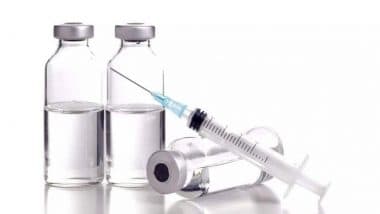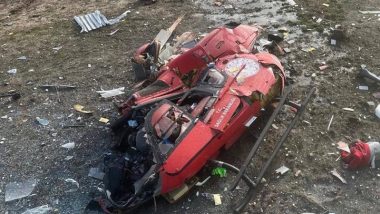Taipei, December 7: Chinese vaccine company Sinovac announced Monday that it is planning to complete a new facility to double its annual vaccine production capacity to 600 million doses by the end of the year, while also securing a USD 500 million investment in a boost to its COVID-19 vaccine development efforts.
The company is currently conducting the last stage of clinical trials for its vaccine candidate in Brazil, Turkey and Indonesia and is among the frontrunners of China' s vaccine efforts.
China has at least five COVID-19 vaccine candidates running late stage clinical trials across more than a dozen countries. Sino Biopharmaceutical Ltd., a pharmaceutical conglomerate, bought a 15 per cent stake in Sinovac for an investment of USD 500 million. COVID-19 Vaccine Update: Serum Institute of India Seeks Emergency Use Nod for Covishield.
The funds will allow the company to “improve our vaccine sales capabilities, expand in Asia markets, develop and access new technologies, and most importantly, accelerate our efforts to help combat the global pandemic,” Sinovac CEO Yin Weidong said in a statement.
On Sunday, 1.2 million doses of its experimental vaccine arrived in Indonesia and are expected to be approved for use soon. Sinovac's candidate is a two-dose inactivated vaccine, an old-school technology in which a live virus is killed and then purified.
It can be stored at 2 to 8 C (36 to 46 F), within the range of a normal refrigerator, unlike some other vaccines candidates that require far lower temperatures. COVID-19 Vaccine Price: Russia Sets Maximum Wholesale Rate For Sputnik V at $26 For 2 Doses.
Sinovac's experimental vaccine is currently approved for emergency use in China, although it has not yet obtained final market approval. Under emergency use, it has been distributed to groups the Chinese government deemed suitable, including front-line medical workers and border personnel.
The latest public data from the company, published in the science journal Lancet, showed its candidate produced lower levels of antibodies in people than those who have recovered from COVID-19.
(This is an unedited and auto-generated story from Syndicated News feed, LatestLY Staff may not have modified or edited the content body)













 Quickly
Quickly






















